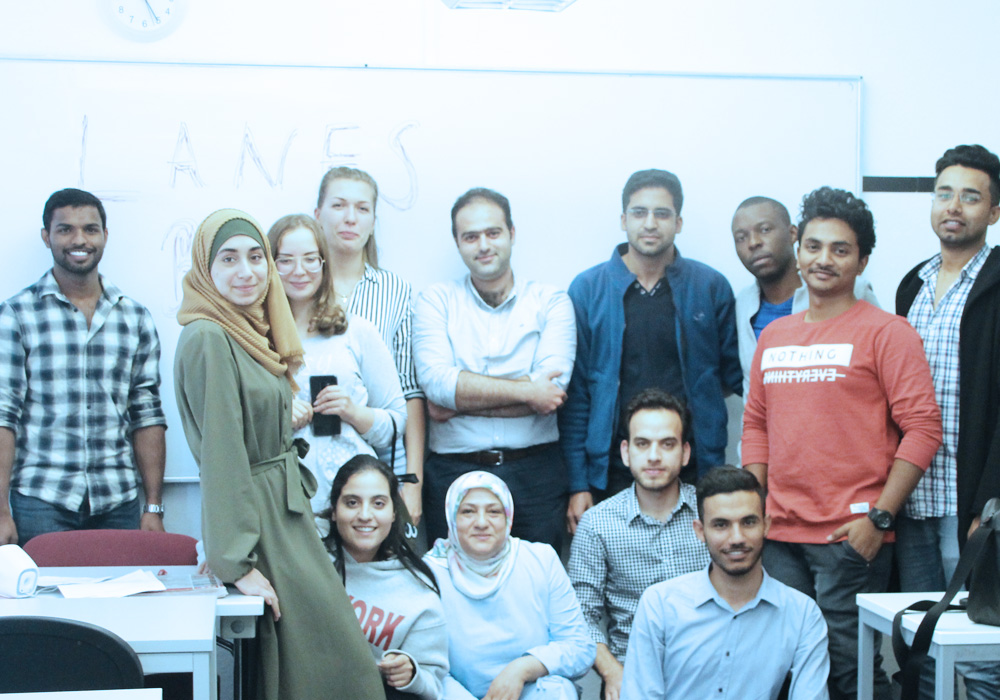

Ein Integrationskurs ist ein vom Bundesamt für Migration und Flüchtlinge (BAMF) geförderter Sprach- und Orientierungskurs für Migrantinnen und Migranten, die neu in Deutschland angekommen sind. In einem Integrationskurs wird den Teilnehmenden die deutsche Sprache sowie Grundkenntnisse über das Leben in Deutschland vermittelt, um ihnen die Integration in die Gesellschaft zu erleichtern. Ein Integrationskurs besteht in der Regel aus einem Sprachkurs und einem Orientierungskurs und kann je nach Bedarf und Voraussetzungen des Teilnehmenden verschiedene Module umfassen. Die Teilnahme an einem Integrationskurs kann unter bestimmten Voraussetzungen verpflichtend sein.
Ein Integrationskurs besteht aus zwei Teilen: einem Sprachkurs und einem Orientierungskurs. Der Unterricht findet in der Regel entweder vormittags oder nachmittags in Gruppen mit maximal 25 Teilnehmern unterschiedlicher Muttersprachen statt. Die erfolgreiche Teilnahme am Integrationskurs wird mit dem „Zertifikat Integrationskurs“ bescheinigt.
Der Sprachkurs umfasst in der Regel 600 Unterrichtsstunden, die sich auf einen Basis- und einen Aufbausprachkurs verteilen. Ziel sind ausreichende Sprachkenntnisse, um die Integration von Migranten im Sinne von gesellschaftlicher Teilhabe und Chancengleichheit zu gewährleisten.
“Über ausreichende Kenntnisse der deutschen Sprache […] verfügt, wer sich im täglichen Leben in seiner Umgebung selbständig sprachlich zurechtfinden und entsprechend seinem Alter und Bildungsstand ein Gespräch führen und sich schriftlich ausdrücken kann (Niveau B1 des GER)
Bei Bedarf können besondere Kurse angeboten werden, die sich an unterschiedliche Zielgruppen richten.
Bis zu 900 Unterrichtsstunden im Sprachkurs umfassen der
Das Angebot der Integrationskurse wird vom Bundesamt für Migration und Flüchtlinge (BAMF) koordiniert und gesteuert: Das BAMF zertifiziert und kontrolliert die öffentlichen und privaten Träger, die die Integrationskurse und die abschließenden Tests durchführen. Es veröffentlicht die Lehrpläne und zugelassenen Lehrmaterialien. Last but not least untersucht es die Integrationskurse und veröffentlicht regelmäßig Teilnehmerstatistiken.
Vormittag: Montag bis Freitag von 08:30 - 12:30
Nachmittag: Montag bis Freitag von 13:30 - 17:30
Duisburg
100 UE pro Modul
Allg. IK 600 UE Alphakurs 900 UE
Orientierungskurs 100 UE
wird nach persönlicher Beratung festgelegt
A1.1-A2.1-B1.1 :
30.06.2025 - 22.08.2025
01.09.2025 - 24.10.2025
27.10.2025 - 19.12.2025
05.01.2026 - 27.02.2026
02.03.2026 - 24.04.2026
A1.2-A2.2-B1.2 :
30.06.2025 - 22.08.2025
01.09.2025 - 24.10.2025
27.10.2025 - 19.12.2025
05.01.2026 - 27.02.2026
02.03.2026 - 24.04.2026
20-25 Unterrichtseinheiten pro Woche
L.A.N.E.S ist mit über 2000 Teilnehmenden jährlich einer der größten telc Prüfungsanbieter in NRW. An insgesamt 2 Prüfungszentren (Duisburg und Düsseldorf) führt LANES mehrmals pro Monat Prüfungen für den Hochschulzugang durch.
Bismarckstr. 142 a Etage 1
47057 Duisburg, Germany
40210 Düsseldorf, Deutschland
Möchten Sie regelmäßig über Angebote und Rabattaktionen informiert werden, dann melden Sie sich mit Ihrer E Mail Adresse dafür hier an.
Urheberrechte © 2013 - 2025 L.A.N.E.S - Alle Rechte vorbehalten.